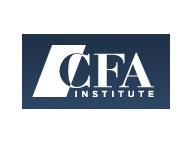Faculty News
—
Prof. Joseph Foudy discusses the impact of political stability on debt repayment
—

Excerpt from CCTV -- "'So some countries like France might be heavily indebted, but they have a long tradition of paying high tax rates, going along with whatever along is needed to pay their debts. Other countries like Argentina, I recall it defaulted when it only had 30% to 40% debt to GDP, they just did not have the political will to do so. Then there’s countries like Pakistan where there’s such unrest and so many economic challenges, that whatever the debt is, you just question the ability of the government to repay it,' Joseph Foudy said."
Faculty News
—

Excerpt from CCTV -- "'So some countries like France might be heavily indebted, but they have a long tradition of paying high tax rates, going along with whatever along is needed to pay their debts. Other countries like Argentina, I recall it defaulted when it only had 30% to 40% debt to GDP, they just did not have the political will to do so. Then there’s countries like Pakistan where there’s such unrest and so many economic challenges, that whatever the debt is, you just question the ability of the government to repay it,' Joseph Foudy said."




















